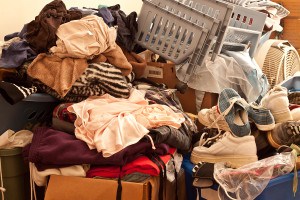Denise Johnson | Claims Journal | April 3, 2017
Adjusters who encounter hoarders on property claims can expect to have trouble in determining the cause of a covered loss as well as damages, said Jeff Taxier, education and training manager for American Technologies, Inc. Typically, a hoarder equals more risk of a property insurance claim, he said.
According to the National Fire Protection Association, hoarding is defined as “collecting or keeping large amounts of various items in the home due to strong urges to save them or distress experienced when discarding them. Many rooms in the home are so filled with possessions that residents can no longer use the rooms as designed. The home is so overloaded with things that everyday living is compromised.”
Michigan-based insurance agency Regency Group reports on its website that 14 million people are classified as hoarders in the U.S.
According to the Mayo Clinic hoarding usually starts around pre-teen years and tends to get worse with age.
Even though hoarding is not a covered loss, Taxier said that it does complicate potentially covered losses.
The Massachusetts Health and Human Services Department states that hoarding can pose health risks to homeowners and family members and that blocked exits or heating vents can also pose a fire hazard.
Stacked objects or boxes may block an adjuster’s ability to conduct a visual inspection of structural damage. In addition, the hoarded items could create structural issues due to the excess weight. Accumulated items could also pose an injury risk to adjusters and vendors evaluating property and content damage. In addition, an overabundance of clutter could delay repair of property damage.
“It becomes difficult to actually determine what are the actual damages from the potentially covered loss versus the mess that the hoarder has left,” Taxier said. “The fact the person has been a hoarder impacts the adjustment of the loss.”
Taxier, who presented on the subject during the annual Combined Claims Conference held recently in Orange County, Calif., said that a hoarder is unlikely to maintain their home.
“Somebody that is a hoarder is going to be a much higher risk for having a type of loss that could be covered by an insurance policy,” Taxier said.
He recommended adjusters explain to the hoarder the need to remove hoarded items so that repairs can be made to resolve the claim. Sometimes this is enough to move the claim along, he said. Some hoarders will be resistant and this will delay resolution of claims.
